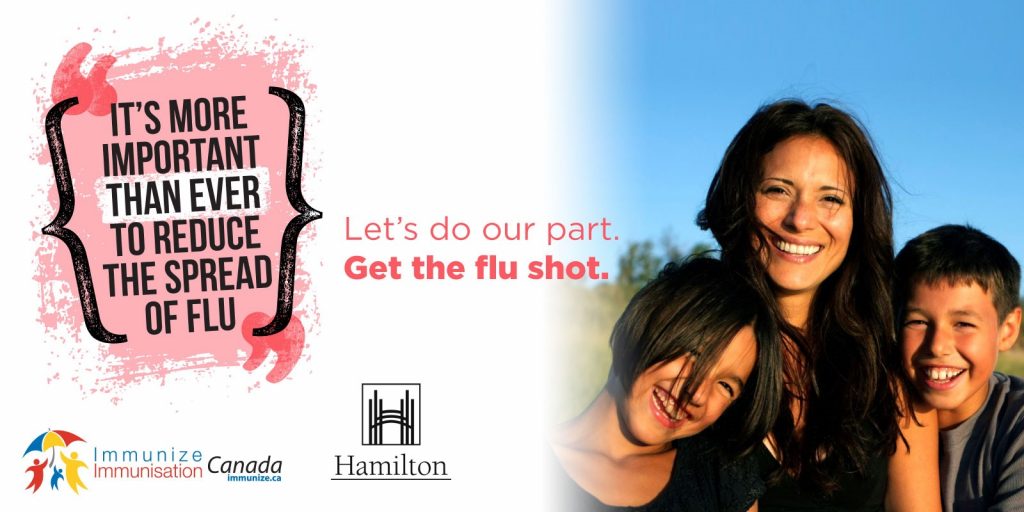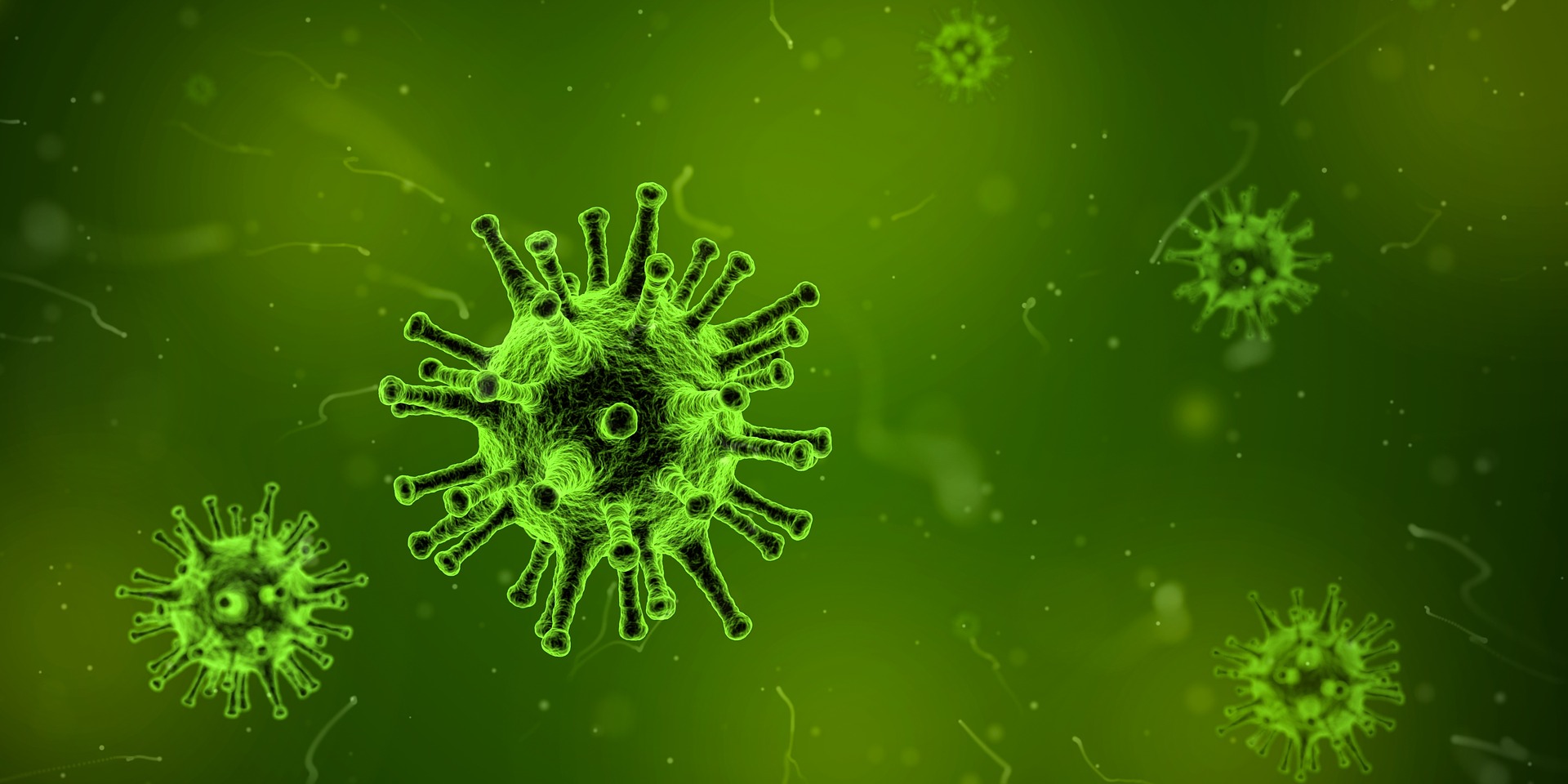
What you need to know about COVID-19 and the flu
Infectious diseases specialists from Hamilton Health Sciences and St. Joseph’s Healthcare Hamilton answer some frequently asked questions about flu season and COVID-19.
Why is it more important than ever to get the flu shot this year?
This year is unique in that the COVID pandemic is going on and it is going to put stress on our health care system. The flu shot is important to protect individuals so there is less strain on the system, to make sure their illnesses are either prevented or milder, prevent them from needing to go to hospital, and prevent death.
If you’re following the news, there are certainly parts of the world where seasonal influenza is less than it has been in previous years. This is in part due to masks, hand hygiene and physical distancing. But the flu is a virus that circulates every year and we do expect it to circulate in the Hamilton area this year. It can circulate at the same time as COVID-19 is circulating.
Can I have the flu and COVID-19 at the same time?
Yes, you can get both influenza and COVID-19 at the same time. There are a few patients that do get this although it’s very rare. The symptoms are very similar between the two so it’s hard to distinguish both of them, especially when they occur together. But it’s much more common to have one or the other rather than both.
Will the flu shot protect me against COVID-19?
COVID-19 is caused by a different virus than the flu, called SARS-CoV-2. When you get the flu shot, it does not protect you against COVID-19. So far, we do not have any evidence to suggest that getting the annual flu shot would increase your risk of COVID-19 or more severe outcomes from COVID-19.
Why is it important to get the flu shot when everyone is physically distancing?
We know that physical distancing, hand washing, and staying home when sick will reduce the flu spreading in the community. But we know that it’s not perfect as we’re back together and at schools and in workplaces. There is still a risk of transmitting the flu even in the context of physical distancing and masking. It’s important to get the flu shot to prevent both influenza transmission as well as people having symptoms in the community and then needing testing and assessment.
Is the flu shot safe for young children and those who are pregnant?
We have a lot of data to show us that the flu shot is safe for groups like young children and those who are pregnant. In fact, these are groups of the population who can have more serious consequences when they get the flu and therefore these are groups that we highly recommend to get the flu shot every year.
What is the difference between a cold, flu, and COVID-19?
There are very subtle differences between all three, although for the most part they do mimic each other to the point where even a skilled doctor or nurse would not be able to tell the difference without a COVID test. With a cold, you may sneeze a little bit more. With COVID-19, the loss of smell may be a symptom.
There are a lot of symptoms like muscle pains, headaches, and fevers which could appear with all those illnesses and so they’re very hard to distinguish. They may be slightly different but at the end of the day, for people presenting with some of those symptoms, it’s going to be difficult to tell the difference. Those people need to be tested to distinguish whether or not it’s COVID-19.
How can we prevent spreading the flu?
Preventing the spread of the flu is very similar to preventing the spread of COVID-19. Number one is good hand hygiene, preventing ourselves from touching objects or touching other people and then touching our eyes, nose and mouth and introducing the virus to to ourselves.
Number two is not going out while sick because that prevents us from spreading the infection to other people. The use of masks in indoor settings prevents our respiratory droplets going on other people.
And, finally, getting the flu shot — which is the big difference between the two. We know that for people who get the influenza vaccine, about 60% of them don’t get influenza, and even the people that do get influenza often have a much milder disease when they get the flu shot.
What should you do if you have symptoms?
If you have new symptoms or you’re concerned you have the flu or COVID, it’s important that you stay home so that you protect those around you and those in the community. It’s also advisable to contact with your primary care provider if you have access to one because they can help guide you in terms of whether you should go to an assessment center for COVID testing or whether you might need more of an assessment at either urgent care or the emergency department.
Will the flu shot impact the effectiveness of a COVID-19 vaccine in the future?
Influenza vaccination and what will become of COVID-19 vaccination are very different. The proteins that we use to make an immune response in the influenza vaccine are going to be very different from a COVID-19 vaccine as they’re completely different viruses. So there’s no safety issues with getting your influenza vaccination this year and if we do get a COVID-19 vaccination next year, you can still get that.
When should you get tested for COVID-19?
The criteria for getting tested for COVID-19 is changing as we learn more about this pandemic and more about the symptoms. Currently if you have symptoms such as fever, respiratory symptoms, or new gastrointestinal symptoms, it is being recommended that you go get tested for COVID-19. For those who don’t have symptoms or who are asymptomatic, currently the recommendations are to only get tested if you have been in contact with someone who has COVID-19 or if you carry the COVID alert app and you’ve been alerted to the fact that you’ve been in contact with someone with COVID-19.
Learn more about the flu vaccine on hamilton.ca.
Learn more about the coronavirus on hamilton.ca, including when to get tested.



